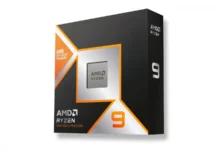AMD Confirms Both the 7950X3D and 7800X3D Will Be Capable of Overclocking!

While the AMD Ryzen 5800X3D was an absolutely incredible gaming processor (and still is!), there was one particular factor in its design that was met with more than a little disappointment from a certain portion of the PC community. Namely, it wasn’t capable of being overclocked. Which, by proxy, meant that it couldn’t really be pushed to its absolute performance limit.
With this in mind, therefore, with the upcoming release of the Ryzen 7000 X3D platform people were clearly curious to know whether these CPUs would be capable of overclocking. Well, following a report via TechPowerUp, we have our answer and it is yes. Well, for the 7950X3D and 7800X3D at least!

AMD Ryzen 7950X3D/7800X3D – Overclocking Unlocked!
Yep, according to the official AMD specifications page, it has been categorically confirmed that both the 7950X3D and 7800X3D will have their overclocking capabilities unlocked out of the box meaning that once these are released (around mid to end-February) we could have two brand new champions in terms of record-setting performance.
With that being said, however, it doesn’t seem that this is going to come without some still unanswered questions.

Both specifications seem to suggest that throttling will occur on both the 7950X3D/7800X3D once a temperature of 89C is reached. Now, while this is significantly toaster than the generic user should ever see with some kind of moderately decent CPU cooling solution, this kind of heat is easily achievable in even moderate overclocking conditions at 100% load. Given that most Ryzen processors do not even consider throttling until around 95C, 89C isn’t, at least in theory, going to be particularly helpful.
As such, for users looking to push these processors beyond their factory settings, it would appear that an exceptionally high-performance 360mm AIO liquid cooler, or better still, custom loop set up, is going to be pretty much required if not necessary! – And for overclockers? Well, they’re (mostly) no strangers to the potency of LN2 (liquid nitrogen) cooling, but, albeit, with lower-than-usual throttling limits, they’ve got something they’re going to have to try and work around.
Put simply, while both these processors can be overclocked (which is good news) we’d probably recommend that the vast majority of you generic gaming consumers just keep these at their stock settings and not give into toasty temps merely out of curiousity.
What do you think though? – Let us know in the comments!








